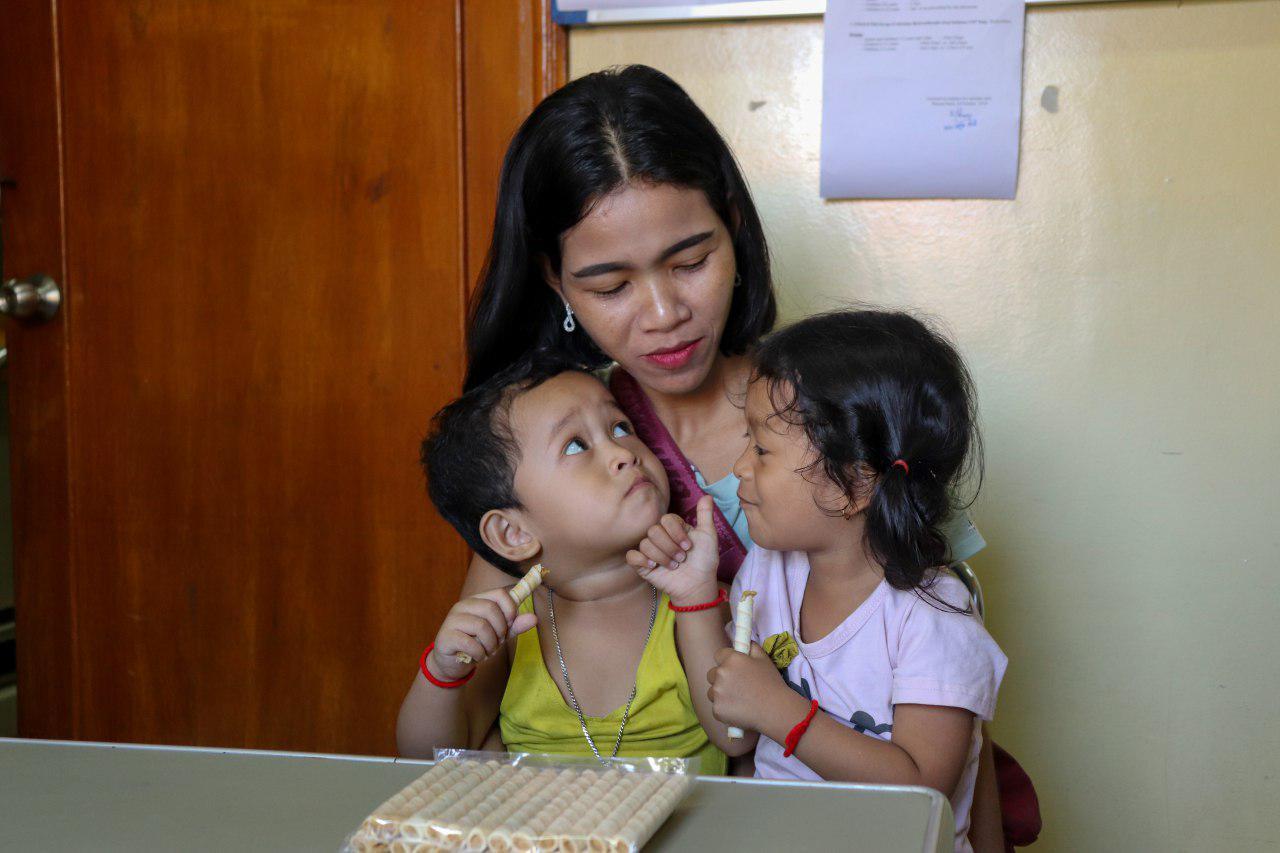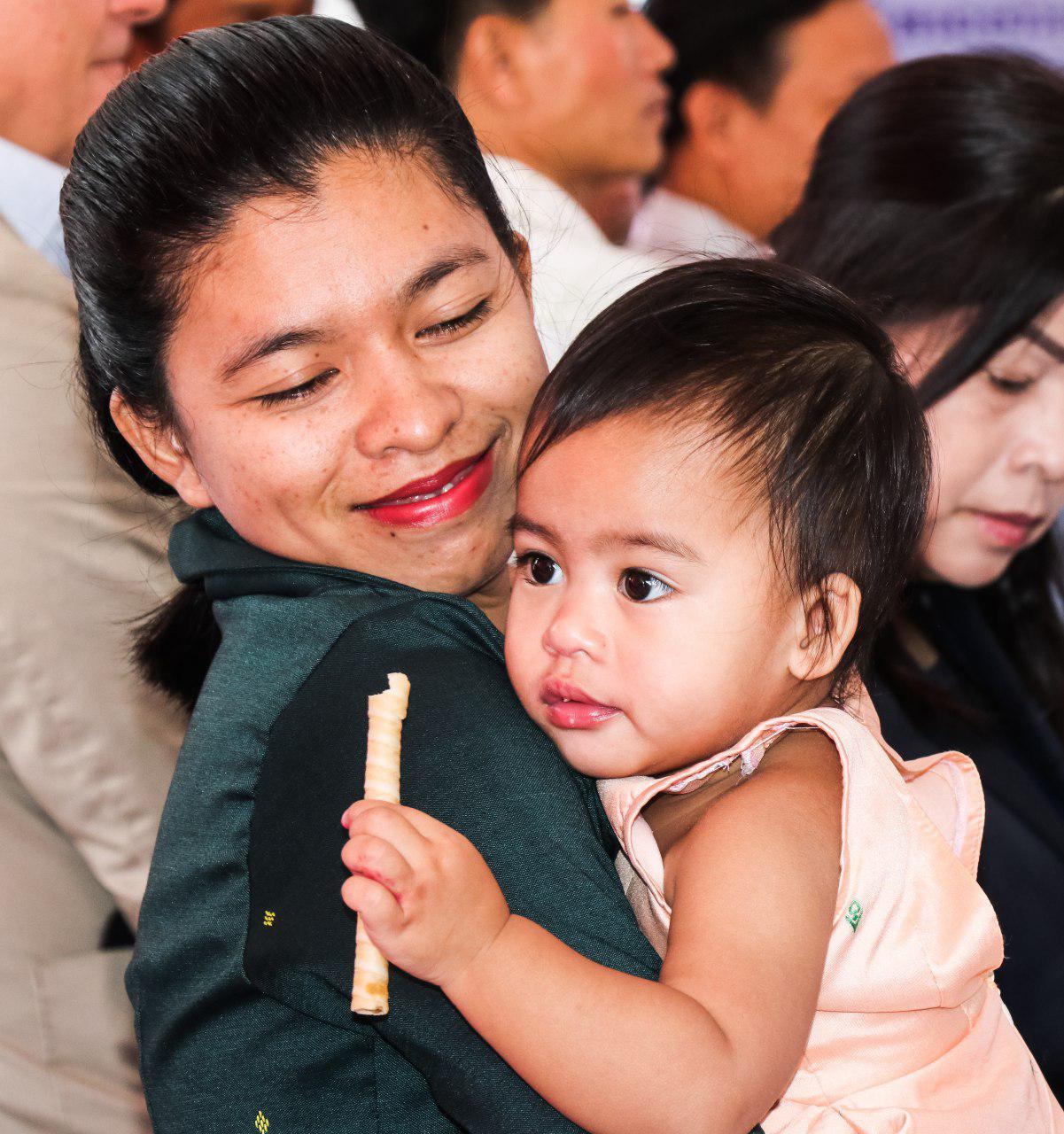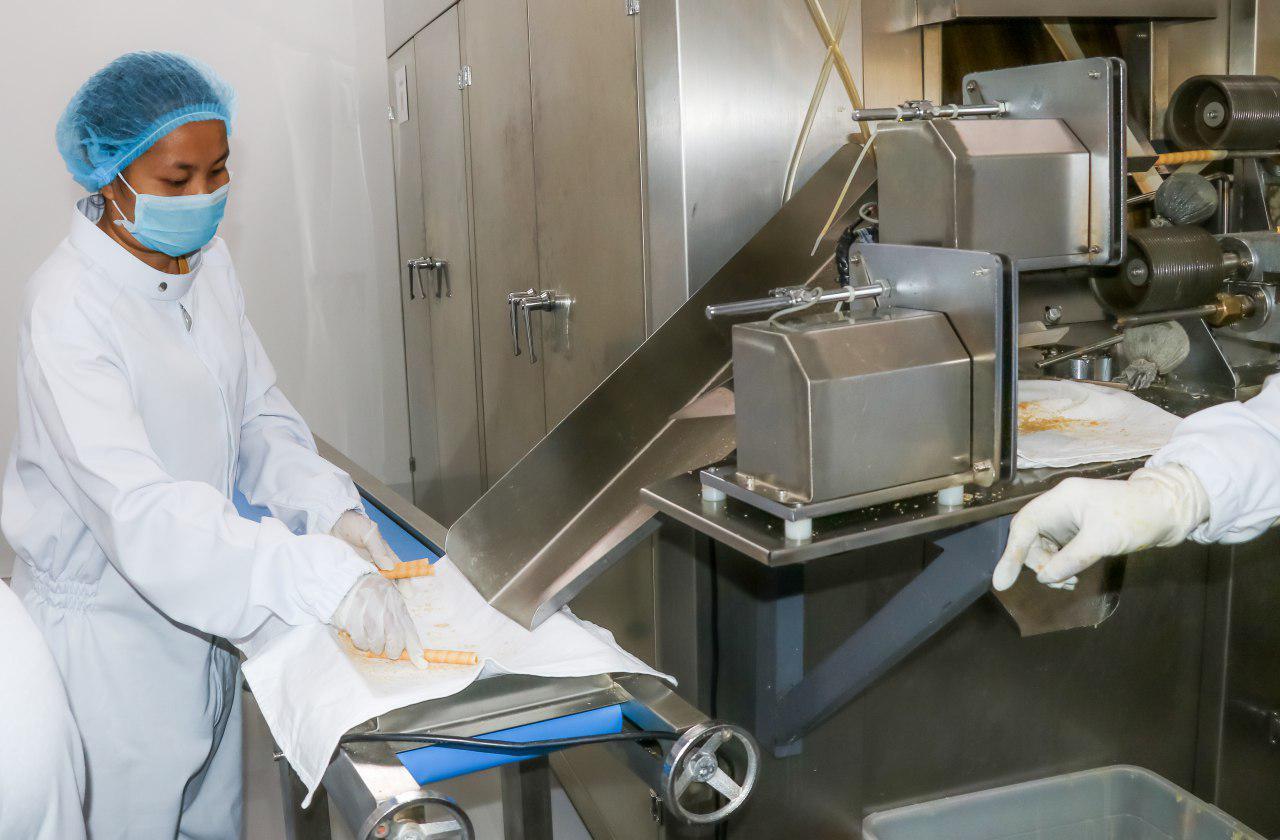Phnom Penh (FN), Dec 17 - A new fish-based wafer snack – Nutrix, has been developed to treat severe acute malnutrition in children by UNICEF, the French National Research Institute for Sustainable Development (IRD), Copenhagen University (CU) and Danish Care Foods (DCF), in collaboration with the Royal Government of Cambodia, according to the Joint Press Release dated Monday.
At the launch of the Nutrix production site in Phnom Penh, the partners announced that the ready-to-use-therapeutic food will be produced at scale, to address malnutrition in children in Cambodia.
“The launch of the local production of this innovative therapeutic food marks an important step towards reaching the government’s goal to treat at least 25,000 children with severe acute malnutrition per year,” says H.E. Prof. Mam Bunheng, Minister of Health, Royal Government of Cambodia.
“The start of the production will help ensure that a local commodity to treat severe acute malnutrition is available. Over the last five years, many partners have supported us to develop this product and we are hopeful that this new partnership will help us reach more children with severe acute malnutrition treatment.” he added.
Approximately 2.6 per cent of children in Cambodia are diagnosed with severe acute malnutrition (SAM). To treat them, home-based ready-to-use therapeutic foods are prescribed as a treatment and without these, many children may need to be hospitalized. However, research shows that there is low up-take from children requiring treatment of the existing products currently provided within the health facilities in Cambodia.
“In East Asia and Pacific, over 5 million children under the age of 5 are affected by severe acute malnutrition annually, which is a major cause of death in children under 5. Ending severe acute malnutrition is challenging and requires social and political will. The Royal Government of Cambodia should be congratulated for prioritizing this issue and for strengthening treatment in all settings. Cambodia joins one of two countries in the region to produce its own ready-to-use therapeutic food,” said Ms. Wivina Belmonte, UNICEF Deputy Regional Director, East Asia and Pacific.
As an affordable snack-like therapeutic food, the Cambodian government can provide Nutrix to treat severe acute malnutrition in children under the age of five in remote and poor communities through local health facilities. It is estimated that in Cambodia, between 60,000 to 90,000 children need specialized medical treatment annually, including therapeutic food.
Well-known ready-to-use therapeutic foods made with peanut and dairy are imported into Cambodia. However, ingredients in Nutrix are locally sourced which makes it 20 per cent cheaper to produce.
“By using a product adapted to local taste and local preferences we can make a real impact on malnutrition in Cambodia. This is important because besides the 2.6 per cent of children with severe acute malnutrition, another 8 per cent of children suffer moderate acute malnutrition in Cambodia, which is a staggering number.” says Dr. Frank Wieringa from IRD, who has been working closely with UNICEF, CU and DCF in the development of Nutrix over the last five years. “Nutrix can also serve as an example for other countries in the region, because Cambodia is not the only country in South-East Asia affected by a high prevalence of childhood malnutrition”.
UNICEF, in collaboration with the Royal Government of Cambodia, has been working with Danish Care Foods, the private sector company producing Nutrix in Phnom Penh.
Mr. Lyndon Paul, General Manager of Danish Care Foods, said: “It is inspiring to see multiple partners working together to develop this local ready-to-use therapeutic food.
DCF is a social enterprise with limited funding and we would have never thought that the small initiative, which started five years ago, will soon be able to reach so many children. With the same amount of government budget, the Ministry of Health can treat 20 per cent more children thanks to the lower cost of procuring the therapeutic product.”
Nutrix was designed to better suit the palate of children in Cambodia to increase the acceptability of receiving and staying on treatment. Children who receive this new therapeutic food are seen monthly by health staff to monitor their development and progress. With support from UNICEF, the number of children treated in 36 hospitals and over 100 health centres nationally increased from 1,604 in 2011 to 5,576 in 2017. More children in Cambodia can be treated for severe acute malnutrition with Nutrix.
For more information, find relevant articles here:
-Development and Acceptability of Locally Made Fish-Based, Ready-to-Use Products for the Prevention and Treatment of Malnutrition in Cambodia here
-Effectiveness of a Locally Produced, Fish-Based Food Product on Weight Gain among Cambodian Children in the Treatment of Acute Malnutrition: A Randomized Controlled Trial here
About UNICEF
UNICEF works in some of the world’s toughest places, to reach the world’s most disadvantaged children. Across more than 190 countries and territories, we work for every child, everywhere, to build a better world for everyone. For more information about UNICEF and its work for children visit https://www.unicef.org/cambodia
About IRD France
The French National Research Institute for Sustainable Development (IRD), an internationally recognised multidisciplinary organisation working primarily in partnership with Mediterranean and inter-tropical countries, is a French public establishment under the joint authority of the French Ministry of Higher Education and Research and the Ministry of Foreign Affairs and International Development. Through its network and presence in 50 or so countries, it takes an original approach to research, expertise, training and knowledge-sharing, to the benefit of countries and regions that make science and innovation key drivers in their development.
For more information visit en.ird.fr
About Danish Care Foods Co., Ltd.
Danish Care Foods (DCF), a partner company of Vissot Co., Ltd was created to scale up the ready-to-use-therapeutic foods. Vissot has been part of this project since they saw the need for DCF to meet the current demand for affordable food in treating malnutrition. Danish Care Foods (DCF) mission is to work in producing nutrified products to reach market demands and to provide community support to local NGOs, governments, and institutions in further developing consumer products rich in nutrients.
For more information, please contact: Bunly Meas, Communication Specialist, UNICEF Cambodia, Email: [email protected]
Iman Morooka, Chief of Communication, UNICEF Cambodia, Email: [email protected]
=FRESH NEWS










